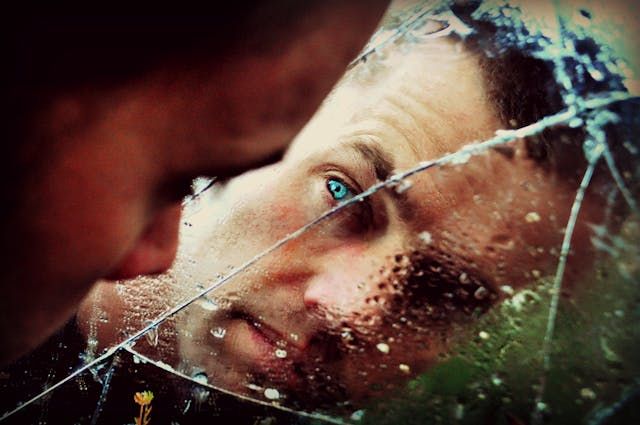While it’s natural to notice changes in your hair as you age, early detection so you can stop hair loss early on is critical to managing and treating it effectively. Ignoring the early signs can lead to significant thinning or even permanent hair loss, but taking action early opens up a world of options for maintaining a full, healthy head of hair.
Why Hair Loss Happens
Hair loss can occur for various reasons, including genetics, hormonal imbalances, medical conditions, and lifestyle factors. Androgenetic alopecia, or hereditary hair loss, is the most common cause, affecting both men and women. Other triggers include stress, nutritional deficiencies, and underlying health issues like thyroid disorders or autoimmune diseases. Regardless of the cause, hair loss usually progresses over time, making it essential to address the issue as soon as possible.

The Importance of Early Detection
Catching hair loss early allows you to identify the root cause and begin treatment before the condition worsens. Here are some compelling reasons why early detection matters:
1. Preservation of Existing Hair
Once hair follicles stop producing hair, they cannot be revived. Early intervention helps preserve the healthy hair you still have, preventing further thinning. Treatments are most effective when they target follicles that are still active but struggling to produce strong, healthy hair.
2. More Treatment Options
Addressing hair loss early gives you access to a broader range of treatment options. From topical solutions like minoxidil to prescription medications, laser therapy, or even non-surgical hair restoration, the sooner you act, the better your chances of finding an effective solution.
3. Improved Confidence
Hair loss can have a significant psychological impact, affecting your self-esteem and confidence. Taking steps to manage hair loss early helps you maintain a positive self-image and prevents the emotional toll that often accompanies advanced stages of thinning.
4. Slower Progression
Even if your hair loss is due to genetics, early intervention can slow its progression. Regular monitoring and treatment can help you stay ahead of the problem, ensuring minimal visible impact.
Signs You Might Be Losing Hair
Hair loss doesn’t happen overnight, so knowing the early signs can help you take action before it becomes severe. Here are some red flags to watch out for:
- Excessive Shedding: Losing more hair than usual when brushing or washing.
- Thinning at the Crown: Noticeable thinning or widening of your part.
- Receding Hairline: A hairline that’s moving further back over time.
- Patches of Hair Loss: Bald spots or uneven thinning in specific areas.
- Reduced Hair Density: Hair that feels thinner or less voluminous.
If you notice any of these signs, it’s time to consult a specialist for an evaluation.
What Happens During a Hair Loss Evaluation?
When you visit a hair loss specialist, they will conduct a thorough assessment to determine the cause and extent of your hair loss. This may include:
- Medical History: Understanding your overall health, family history of hair loss, and any medications you’re taking.
- Scalp Examination: Checking for signs of inflammation, scarring, or miniaturized hair follicles.
- Pull Test: Gently pulling on small sections of hair to assess shedding levels.
- Diagnostic Tests: Blood tests to rule out medical conditions like thyroid imbalances or nutritional deficiencies.
Armed with this information, the specialist can recommend a personalized treatment plan tailored to your needs.
Effective Treatments Stop Hair Loss
Early-stage hair loss is often easier to treat, with options ranging from non-invasive therapies to more advanced solutions. Here are some of the most effective treatments:
- Topical Treatments: FDA-approved products like minoxidil stimulate hair growth and slow shedding.
- Medications: Prescription drugs like finasteride can block DHT, a hormone linked to hair loss in men.
- Hair Transplant Surgery: There are different types of surgical hair transplant options. Check with a specialist near you to determine which is best for you.
- Low-Level Laser Therapy (LLLT): This non-invasive treatment uses light to stimulate hair follicles and improve growth.
- Platelet-Rich Plasma (PRP) Therapy: Injecting concentrated platelets into the scalp to promote hair regeneration.
- Nutritional Support: Supplements rich in biotin, iron, and other hair-healthy nutrients can address deficiencies that contribute to thinning.
In some cases, combining multiple treatments can yield the best results. A hair loss specialist can guide you through your options and help you choose the most effective approach.
Why See a Hair Loss Specialist?
While over-the-counter products and online advice may seem appealing, a professional evaluation ensures you’re addressing the real cause of your hair loss. Specialists have the expertise and tools to diagnose your condition accurately and create a treatment plan that maximizes your chances of success. Additionally, they can monitor your progress and adjust your plan as needed.
Stop Hair Loss in Its Tracks Today
Hair loss can feel overwhelming, but you don’t have to face it alone. Early detection is your best ally in the fight against thinning hair. If you’ve noticed any signs of hair loss, don’t wait—schedule a consultation with a hair loss specialist near you. Taking the first step today can make all the difference in preserving your hair and your confidence.







